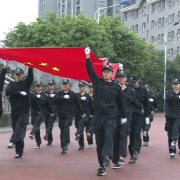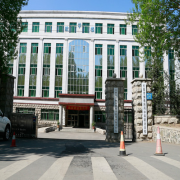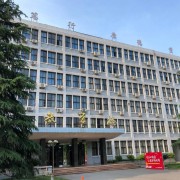phenomenon可数吗(phenomenon例句)
来源:择校网 时间:2024-11-08 20:52:35
一、phenomenon可数吗***phenomenon例句
phenomenon是可数名词。其复数形式为phenomena,其意思是现象、杰出的人、非凡的人,例如:cultural phenomena.文化现象、social phenomena.社会现象等。
phenomenon可数吗phenomenon是可数名词。其复数形式为phenomena,其意思是现象、杰出的人、非凡的人,例如:cultural phenomena.文化现象、social phenomena.社会现象等。例句:Job-hopping,once a rare phenomenon,is gaining acceptance.跳槽一度甚为罕见,眼下却越来越普遍。
phenomenon例句She calls the phenomenon"gender pollution."
她将这一现象称为“性别污染”。
The world is about to witness a unique phenomenon this year.
它意味着,全世界将在今年见证一个独特的现象。
Sadly,the phenomenon of single-parent households has only grown."
可悲的是,单亲家庭现象正变得越来越严重。”
Many large industrial companies are catching on to this phenomenon.
许多大型工业公司都注意到了这种现象。
Shopping has always been a social phenomenon.
购物一直就是一个社会现象。
phenomenon双语例句1、Globalization is a phenomenon of the 21st century.
全球化是21世纪的现象。
2、The causes of the phenomenon are still incompletely understood.
造成这种现象的原因尚未彻底弄清。
3、They see the shift to the right as a worldwide phenomenon.
他们认为政治上的右翼倾向是一个世界现象。
4、It's an interesting scientific phenomenon,but of no practical use whatever
这是一种有趣的科学现象,但没什么实用价值。
5、This form of civil disobedience isn't a particularly new phenomenon.
这种形式的非暴力反抗并不是特别新的现象。
二、不可数名词和可数名词有啥区别
可数名词与不可数名词及用法特点名词根据其可数性可分为可数名词和不可数名词。可数名词即指可以分为个体,且可直接用数目进行计数的名词,如 desk(课桌),girl(女孩),room(房间),school(学校)等;不可数名词即指不可数分为个体,且不可直接用数目进行计数的名词,如 milk(牛奶),imformation(消息),money(钱)等。可数名词和不可数名词各有其特点,如可数名词可以有复数形式,可以直接用不定冠词修饰,可以直接用数词修饰,可受 many,(a) few, several, a great number of等的修饰;不可数名词没有复数形式,不可以直接用不定冠词修饰,也不可以直接用数词修饰,不可受 many,(a) few, several, a great number of等的修饰,但可用 much,(a) little, a great deal等的修饰。如: There are eight rooms in the house.这房子有8个房间。 Mr Smith has many students.史密斯先生有许多学生。 He left for Beijing a few days ago.几天前他去北京了。 I'm sorry to give you so much trouble.真对不起给你这么多麻烦。 Do you have much money left?你剩的钱多吗? I want a little time to myself.我希望有一点自己掌握的时间。(from .zkenglish)注:(1)有的名词既可用作可数名词,也可用作不可数名词,只是含义不同,如 room表示“房间”时,为可数名词,但表示“空间”、“余地”时,为不可数名词。(2)有的修饰语既可修饰可数名词,也可修饰不可数名词,如 some, all, a lot of, lots of, plenty of等。
三、不可数名词 集体名词 不规则名词单复数
【不可数名词】
1、最常见的不可数名词有:advice, baggage, change(零钱), furniture, hair, homework, information, knowledge, luggage, money, news, progress, traffic
2、其它不可数名词还有:absence, age, anger, courage, energy, equipment, experience, failure, fear, food, fun, health, ice, industry, kindness, labour, luck, marriage, music, nature, paper, peace, pleasure, power, pride, rain, research, respect, safety, salt, sand, silence, sleep, strength, snow, technology, time, trade, transport, travel, trust, truth, waste, water, wealth, weather, wind, work(工作)
【集合名词】
有些集合名词,ommittee,council,crew,crowd,family,gang,government,group,mob,staff,team, union等,在意义上是复数,但在语法形式上是单数,这类名词作主语的主谓一致问题往往遵循“语法一致”或“意义一致”原则。例如:
The committee has/have decided to dismiss him.
A council of elders governs the tribe.
The present government is trying to control inflation.

The school staff are expected to supervise school meals.
(一)通常作复数的集体名词
包括police,people, cattle, militia, vermin等,这些集体名词通常用作复数。
例如:
The British police have only very limited powers.
The militia were called out to guard the borderland.
It seems the cattle on the sides of the dikes were the only living creatures in these desolate surroundings.
(二)通常作不可数名词的集体名词
通常作不可数名词的集体名词,包括poultry,foliage,machinery, equipment,furniture,
merchandise等,这类名词后的动词用单数形式。
例如:
Poultry is expensive at this time of year.
That green foliage was restful.
The merchandise has arrived undamaged.
All the machinery in the factory is made in China.
The suite of furniture he bought was of contemporary style.
The equipment of the photographic studio was expensive.
(三)可作单数也可作复数的集体名词
可作单数也可作复数的集体名词,包括audience, committee, crew, family, government,jury等。
例如:
The audience was/were enthusiastic on the opening night of the play.
The committee has/have decided to dismiss him.
The jury is/are about to announce the winners.
The government has/have discussed the matter for a long time.
【不规则名词】
名词复数的不规则变化 1)child---children foot---feet tooth---teeth mouse---mice man---men woman---women注意:与 man和 woman构成的合成词,其复数形式也是-men和-women。如: an Englishman,two Englishmen.但German不是合成词,故复数形式为Germans;Bowman是姓,其复数是the Bowmans。 2)单复同形如: deer,sheep,fish,Chinese,Japanese li,jin,yuan,two li,three mu,four jin但除人民币元、角、分外,美元、英镑、法郎等都有复数形式。如: a dollar, two dollars; a meter, two meters 3)集体名词,以单数形式出现,但实为复数。如: people police cattle等本身就是复数,不能说 a people,a police,a cattle,但可以说 a pers on,a policeman,a head of cattle,the English,the British,the French,the Chinese,the Japanese,the Swiss等名词,表示国民总称时,作复数用。如: The Chinese are industries and brave.中国人民是勤劳勇敢的。 4)以s结尾,仍为单数的名词,如: a. maths,politics,physics等学科名词,为不可数名词,是单数。 b. news是不可数名词。 c. the United States,the United Nations应视为单数。 The United Nations was organized in 1945.联合国是1945年组建起来的。 d.以复数形式出现的书名,剧名,报纸,杂志名,也可视为单数。 The Arabian Nights is a very interesting story-book.>是一本非常有趣的故事书。 5)表示由两部分构成的东西,如:glasses(眼镜) trousers, clothes若表达具体数目,要借助数量词 pair(对,双); suit(套); a pair of glasses; two pairs of trousers 6)另外还有一些名词,其复数形式有时可表示特别意思,如:goods货物,waters水域,fishes(各种)鱼
【双写】
在不特殊的情况下,当原形最后一个音节为重读闭音节时,需要双写。比如:swim——swimming
run——running
put——putting
begin——begging
想不起来都是双写的.
不一定都只有一个元音字母
【规律】
除了最后一个双写比较有规律之外,都没有规律,要多读多练,慢慢就都记住了。不要花太多时间在找规律上,遇见一个记一个。
关于phenomenon可数吗到此分享完毕,希望能帮助到您。







